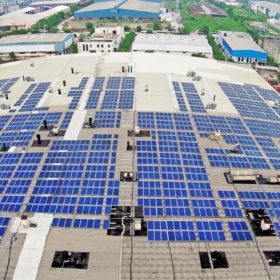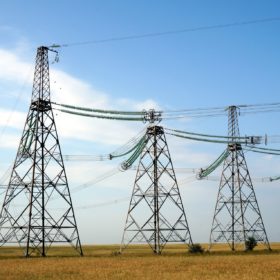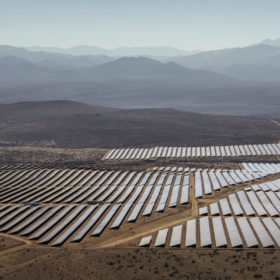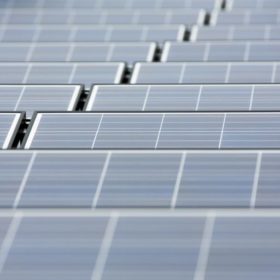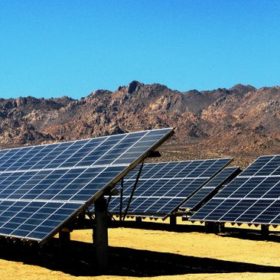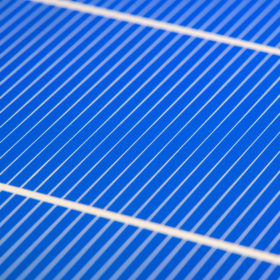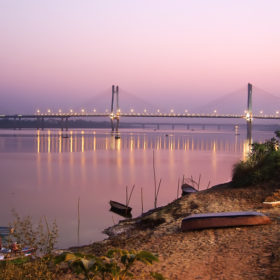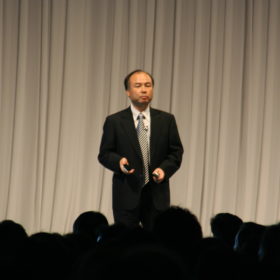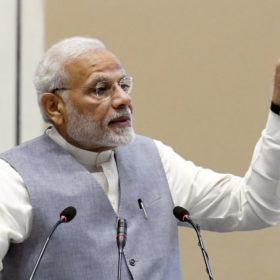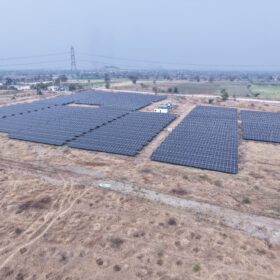Uttar Pradesh auctions 500 MW of solar capacity at tariffs above Rs3
The lowest solar tariff, of Rs3.17 per unit, was quoted by the NTPC utility and Maheshwari Mining and Energy, for 140 MW and 20 MW of grid connected PV capacity, respectively.
Indian EPC eyes central Asian markets
Sterling and Wilson wants to construct 200 MW of PV in Kazakhstan in the next two years and says it is eager to get a slice of the Uzbek market too.
IEA low-balls solar growth (again)
The agency’s base case expects relatively flat growth in solar deployment over the next six years, but for solar to still dominate growth among renewable technologies. The agency’s estimates are again below those of major market analysts.
Module prices have decreased by up to 25% so far this year, TrendForce says
According to the Gold Member Solar Report by EnergyTrend (Q3 2018), monocrystalline module prices have fallen almost 20% this year, while those for polycrystalline modules have dropped by more than 25%. Increased consolidation among manufacturers and developers is expected to occur in China and the global solar market, with more merger deals, plans for capacity reductions and even factory closures.
IPCC: 1.5°C limit needs rapid and far-reaching action but enables SDG progress
The Intergovernmental Panel on Climate Change (IPCC) has released a new report on different ways global warming can be kept within the 1.5°C limit. The panel seeks to inform policymakers before the upcoming COP24 in Poland this December. Resulting from their analysis, the 91 authors state that drastic action and significant investments are needed. Such climate action across all sectors would have significant positive effects on sustainable development progress, they say.
TOPCon: The next big thing after PERC
TOPCon technologies could further increase solar cell efficiencies, said Guangyao Jin, chief scientist, DuPont Photovoltaic Solutions, at this year’s Energy Taiwan, held in September. He added that metallization paste is crucial.
Gujarat will soon tender 250 MW solar+storage capacity
Saurabhbhai Patel, Minister of Energy, Government of Gujarat, has announced that the state will soon issue a 250 MW grid-connected solar tender linked with storage. He also said that Gujarat will add more than 5 GW of new PV capacity in the next three years.
Uttar Pradesh will tender another 500 MW solar capacity by end of October
The recent 500 MW grid-connected solar capacity tendered by the Uttar Pradesh New and Renewable Energy Development Agency (UPNEDA) was oversubscribed by 250 MW. A reverse auction will now be held on October 9. The capacity is part of the previous 1 GW tendered capacity, which was oversubscribed by around 800 MW, but cancelled due to high tariffs
Softbank’s Son makes more big announcements: Free electricity after 25 years
In another ambitious announcement, SoftBank Group CEO, Masayoshi Son has said he will give free power from solar power projects after 25 years of PPA to all ISA member countries. He was speaking at the Indian Government organized RE Invest 2018.
PM Modi: 40% electricity generation from non-fossils by 2030, up to $80 billion for PV manufacturing
India’s Prime Minister kick started the first Assembly of the ISA, the second IORA Renewable Energy Ministerial Meeting, and the 2nd Global RE-Invest yesterday in Greater Noida. The agenda of the day? Universal access to solar energy at affordable rates; securing 40% of India’s electricity generation from non-fossil fuels by 2030, and allocating up to US$80 billion to boost domestic PV manufacturing.
